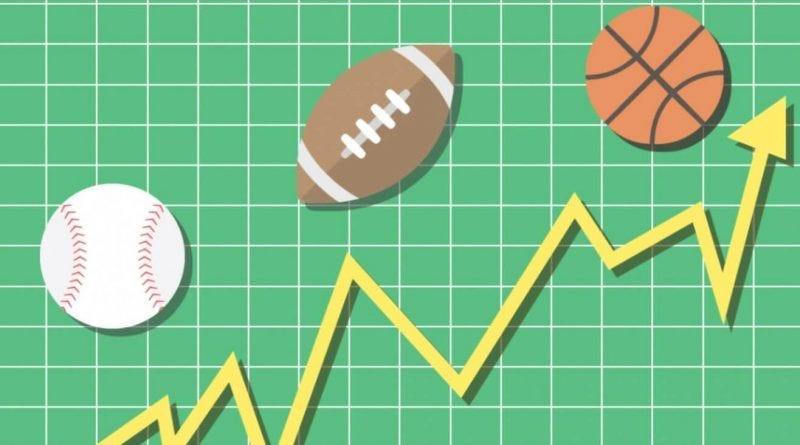What’s The Importance Of Player Injuries And Suspensions When Trying To Predict The Outcome Of A Sporting Event?
admin
- 0
The severity of suspensions and injuries for players is critically important when predicting sports results. These elements can influence the team’s performance for various reasons.
Key players: The performance of a team can be seriously hampered by the absence of important players. This includes star performers as well as those who are in important positions, such as goalkeepers or quarterbacks in American soccer or football.
Depth of squad: Teams who aren’t as deep will struggle with suspensions and injuries more frequently, since their replacements may not be as effective than the players they replace.
Tactical Changes:
Strategies and Formation: Coaches may need to adjust their tactics and team formations to accommodate missing players. This could cause interruption in the flow and effectiveness of the team.
Role Changes: Team members might have to adjust new roles or responsibilities. This may impact the performance and overall cohesion of the team.
Psychological impact:
Team morale: Absence of key players can affect the morale of and confidence among the rest of the squad.
The confidence of opponents: Opponents might feel more confident and motivated when they’re playing a weak team.
Histories and Data Statistics:
Past Performance – Historical data is used to determine the impact of a specific player’s absence. Some teams will have backups set up and reliable systems, whereas others might struggle.
Game Context:
Importantness of a Match – The significance of a match (e.g. regular season vs. postseason) will affect the way a player’s absence will affect the team. In crucial games, teams might have additional motivation or strategies to deal with absences.
The opponent’s strength Strength and quality of your opponent is crucial. A well-constructed team can exploit the gaps much better than a team with weaker skills.
Recovery and return:
Understanding the expected injury recovery time and the extent of an injury is important. Long-term injuries can be different from short-term ones.
Following the return of the player Returning from an injury or suspension could require some time to get back into form and prepare for matches. This can impact the performance in the future.
Market Reactions
Betting Odds. Injuries or suspensions are usually reflected in adjustments to betting odds which reflect the impact that is perceived by the absences of the team. When you analyze these market reactions, you can gain additional insight into how absences are perceived.
In conclusion, injuries to players and suspensions are a major factor in predicting sports results. They affect team dynamics, strategies and overall performance. This makes it vital to look at them alongside other elements like form, head-to-head records, and other external conditions to make a sound prediction. Have a look at the recommended TODAY’S TENNIS PREDICTIONS for site examples.

How Important Is Statistical Analysis If You Want To Predict Sporting Results?
The statistical analysis is an essential component when predicting sports results. It provides a data-driven approach to understanding performance of players and teams patterns and the potential outcomes. Let’s take a closer look at the importance of statistical analysis.
Data-driven decisions Data-driven decisions eliminate subjectivity by providing objective insight into the performance indicators. This allows you to make more well-informed predictions based on information instead of relying on an intuition or bias.
Performance Metrics: Key performance indicators like player statistics and team statistics are crucial for accurate assessment.
Finding Trends and Patterns
Historical Trends: Examining historical data can help you identify patterns, like winning streaks or performances under specific conditions.
Form and Momentum – Statistics regarding recent trends in performance such as the form of the last few games can reveal recent trends or slumps that are vital for predictions.
Comparative Analysis
Head-to-Head Records: Statistical analysis of past encounters between players or teams can reveal tendencies and potential results based on the performance of previous games.
Home vs.Away Performance: The in-depth data of the records for home and away can provide valuable insights on how teams perform differently in various environments. This helps to make more accurate predictions.
Advanced Metrics:
Predictive Models: Advanced statistical techniques such as regression analysis and machine-learning algorithms as well as prediction modeling are able to predict outcomes with greater levels of precision. These models are able to account for numerous variables simultaneously.
Expected Goals – (xG). In sports like soccer metrics, such as the expected goal (xG) can give insights into scoring possibilities. It can also help comprehend a team’s offensive as well as defensive abilities beyond their goals.
Team and player analysis:
Individual Performance: Statistical data on player performance help gauge their current fitness level, condition and potential impact on the field. This also includes an analysis of players with the potential to influence the outcome of the game.
Team Dynamics Team Dynamics: Team statistics such as passing networks, defensive stability and attacking efficiency give a full picture of how well the team works as a whole.
Situational statistics
Clutch performance: Statistics of performance in high pressure situations, such as last minutes of games or playoff scenarios, can be used to determine how players and their teams will perform under similar conditions.
Weather and conditions. A statistical analysis could take into account the impact that external influences can have on performance, such as weather conditions, altitudes, or the playing surface.
Market Analysis
Betting odds: Expert and statistical analysis are often aligned with the betting market, which contains an abundance of data. The monitoring of odds changes can provide insight into the probability of specific outcomes.
Value Bets. In determining the difference between the statistical prediction and the betting odds Value bets can be identified. In these situations, the statistical likelihood is higher.
The Effects of Injury and Suspension:
Statistics on Player Availability: Statistics on the performance of teams when certain players are not available or present can aid in determining the impact of injuries or suspensions. This can include the analysis of squad depth and effectiveness of substitutes.
Real-Time Data:
In-Game Analysis: Live, statistical data can offer real-time insights into the flow of the game, which allows for changes to forecasts for the game prior to the game.
The analysis of statistics in sports is vital to the prediction of results. It provides a methodical, objective method to understand and predict the outcome. By integrating historical information and performance metrics, as well as advanced modeling techniques into statistical analysis, it improves the reliability and accuracy of predictions of sports events. This is why it is an essential instrument for sports analysts, enthusiasts and betting. See the most popular TENNIS PREDICTIONS 1 X 2 for more examples.

What Is The Role Of Public And Expert Opinion In Predicting Sports Results?
Public and expert opinions are a valuable source of information on the prediction of results in sports, however their importance should be considered in conjunction with other aspects and with a degree of caution. The reason they are so important The collective wisdom:
Different perspectives: Experts and public opinion have a wide range of opinions, knowledge and knowledge that can provide valuable insights on elements that impact a game’s outcome.
Crowdsourcing knowledge: Combining the public and expert opinion can help uncover patterns or trends which an individual analysis may overlook. This results in better predictions.
Media Influence
Public Perception. Expert and public opinion can affect the mood and perceptions of a crowd, which can affect the morale of players or expectations from fans.
Media coverage: Expert opinion expressed in mainstream media can influence the narratives and discussions about games. This could impact public sentiment, and possibly betting markets.
Expertise & Analysis
Insider Knowledge: Experts with firsthand experience in sports, for example former players, coaches or analysts, are able to provide unique insight into the dynamics of a team, the player’s form, and strategic considerations.
Data Analysis: Expert opinion basing on advanced metrics or statistical analysis may help to give more accurate forecasts.
Market Influence
Betting Markets. Expert opinion, especially the opinions of reputable analysts or tippers, can influence the betting markets. This can lead to variations in odds as and reveal market trends.
Expert opinions that differ from the consensus in betting markets could reveal benefits for those who are looking for alternative viewpoints.
Bias and Overreactions
Confirmation bias: Opinions of experts and the public can be influenced, at times by preconceptions, prejudices or narratives. They could overestimate or underestimate certain aspects or teams.
Emotional Factors: Emotional biases, such as an obsession with a team or player, may cause confusion and create opinions that are subjective and may not align with objective realities.
Accuracy and Reliability
Track Record: Using the accuracy of expert and public opinions and their track record in time, you are able to determine whether they are reliable and trustworthy in predicting sport results.
Consensus Views and. Counterrian Perspectives: By considering different perspectives, including both consensus views and counterrian perspectives, you can improve your comprehension of the issue at hand.
Integration of Other Factors
Complementary Analyses: The public’s opinions and the expert’s opinions must be weighed alongside other factors like team structure and injuries to players. Strategies, statistical analysis, and analysis of tactical elements are all important.
Weighting of Opinions. Analyzing the credibility and knowledge of different opinions will allow you to determine the relative importance of each opinion in the forecast.
In the end, both expert and public opinions can offer insightful perspectives and information in predicting the outcome of sports events, but they should be critically assessed and integrated into other factors to form an accurate prediction. They are a great source of context and insight, but relying only on the opinions of experts or other sources without taking into account other variables could result in incorrect or inaccurate predictions. 